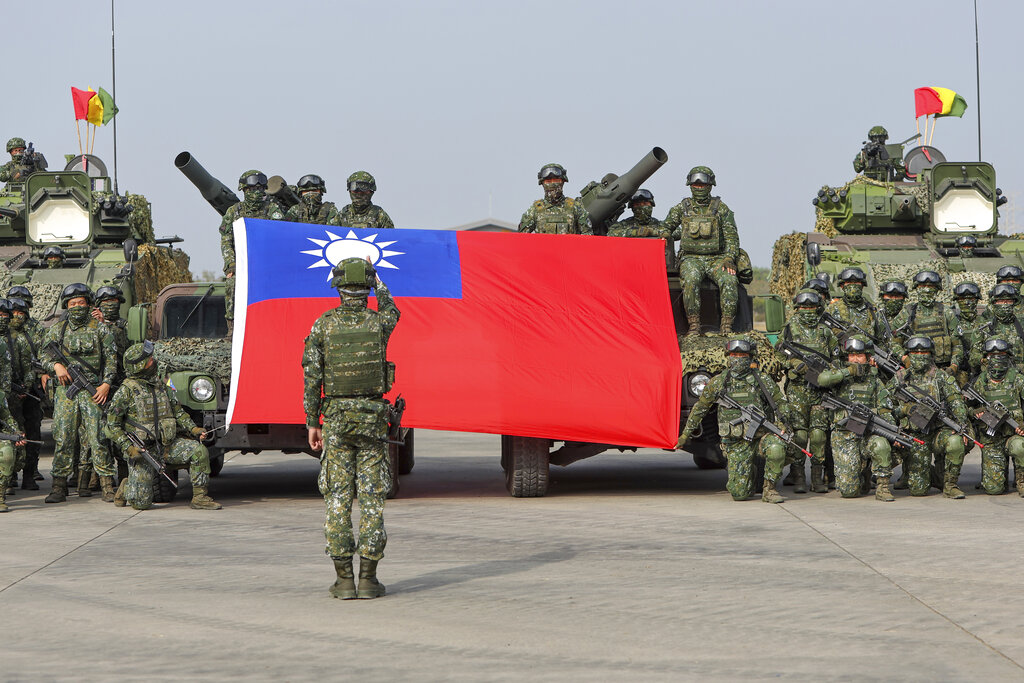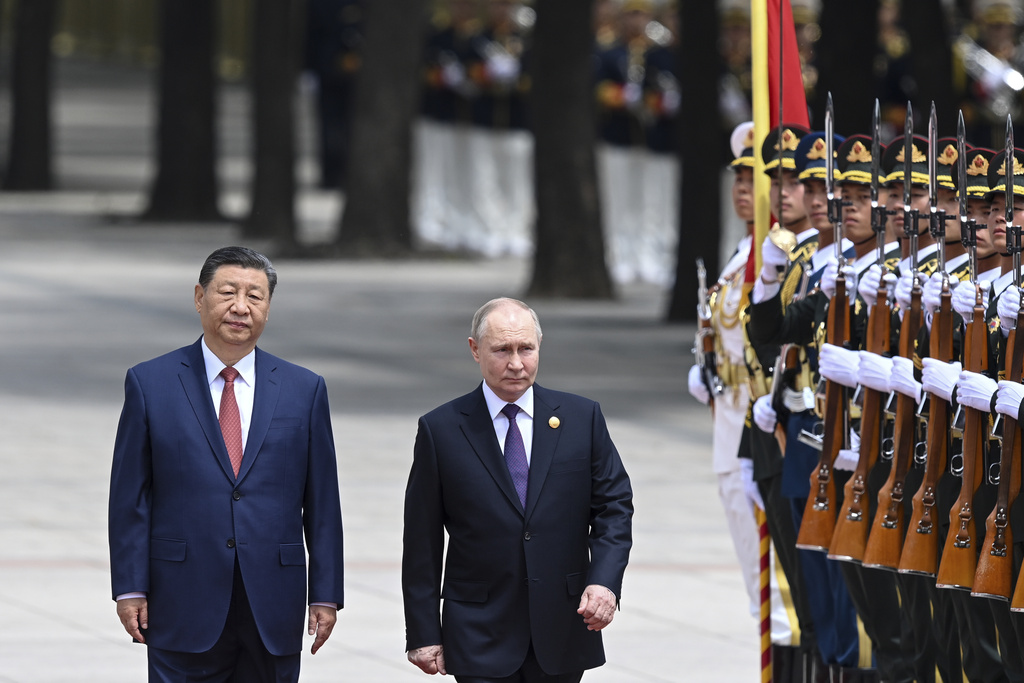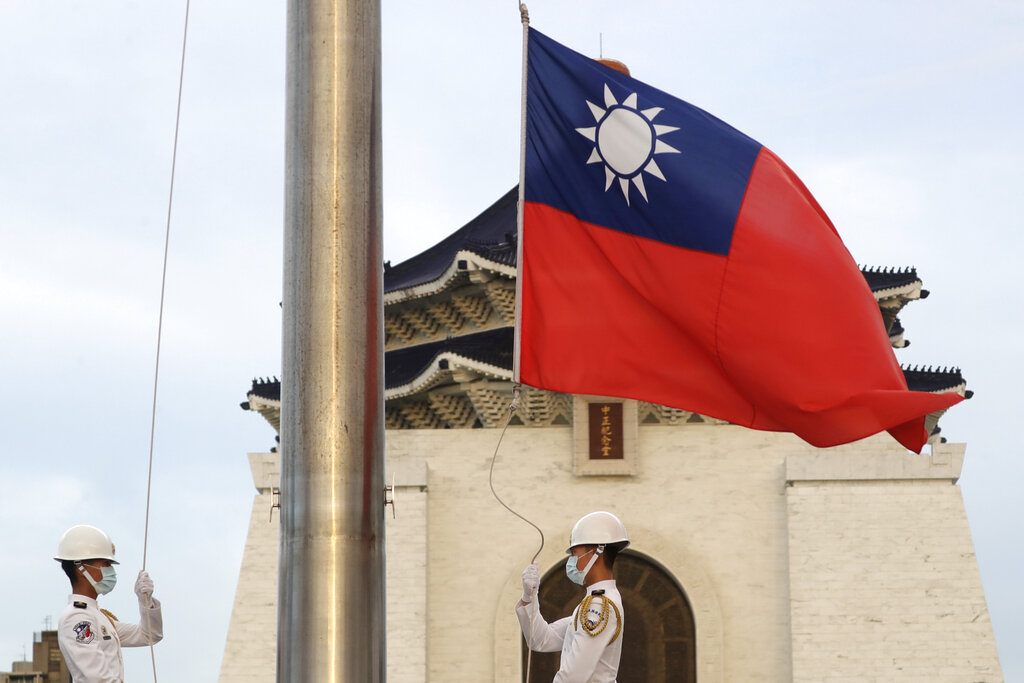As Taiwan begins its largest-ever defense drills, with Communist China fixated on “reunification” with its neighbor, is the island democracy preparing for the wrong kind of war?
While Taiwan’s military is focused on deploying tanks and rockets to repel an amphibious invasion, Beijing is quietly taking a different tack to compel Taipei’s capitulation, one that relies on asymmetric capabilities rather than landing soldiers on the island’s shores.
This emerging effort is a cyber-enabled economic warfare campaign designed to erode Taipei’s capacity to resist reunification. It is an effort that will require America and its allies and partners to invest in new capabilities in defense.
Having watched Russia struggle to gain ground in Ukraine, China’s paramount leader, Xi Jinping, is likely preparing his forces for something other than an ambitious amphibious assault. Instead, he is preparing a siege that will erode the island’s capacity to resist while leaving Taipei intact.

By using a combination of diplomatic pressure, cyber-attacks on key infrastructure, and strategically timed military drills, Beijing can roil the island’s grid while imposing little cost on itself.
Nearly completely reliant on imports of oil and liquified natural gas for electricity generation, Taiwan is highly vulnerable to a Chinese shadow maritime quarantine. As the power flickers and the economy falters, China can rely on influence operations and mass panic to compel capitulation without stepping on shore.
Countering this scenario will require America and its allies and partners to siege-proof Taiwan, a move that will allow Taipei to hold out while complicating Beijing’s calculus — forcing Mr. Xi to either withdraw or risk an all-out war with Washington.
These efforts should primarily focus on helping Taipei to strengthen its own defenses against Chinese coercion, particularly within the cyber domain.
Just as Washington offered cyber assistance to Ukraine in the lead-up to Russia’s invasion, the Department of State and the Department of Defense should do more to assist Taiwan in protecting its critical infrastructure from disruption due to sabotage.

America, along with its allies and partners in the Indo-Pacific, also have a key role in protecting the island’s energy infrastructure. Taiwan currently relies on Qatar — an emerging Chinese partner — for nearly a third of its LNG, while efforts to build up stockpiles have largely stalled.
The island also faces a shortfall of energy storage options, such as large-scale batteries to keep essential neighborhood services running amid a larger blackout.
Rather than waiting for an energy emergency to arise, America can prepare a full suite of options well in advance. Working with Congress, the Trump administration can prepare the legal groundwork for taking action to ensure the free flow of energy to the island, countering any Chinese claims to the contrary.
This effort should be conducted in conjunction with the White House, the Department of Defense, and Congress developing contingency plans for re-flagging oil and LNG transport ships in the event of a siege — forcing China to choose between allowing America-flagged ships to dock at Taiwanese ports or escalating into a shooting war.
Congress could also consider passing conditioned sanctions packages that would automatically impose penalties against Chinese entities based on Beijing’s efforts to quarantine the island.

The Trump administration can match these measures by prioritizing diplomatic outreach to Taiwan’s main energy suppliers, outlining the economic and political consequences of succumbing to Chinese pressure to stall deliveries.
Preparing Taiwan to manage such a crisis will also require Washington to signal its capacity to intervene in case of escalation.
While Beijing continues to prepare for a full-out assault if a sustained siege fails, Chinese forces remain highly vulnerable to a sustained American military response — should it arrive on time and be well-prepared.
Achieving that objective will require Washington to secure the civilian communications and transportation systems that allow warfighters to smoothly transfer from fort to port to the field.
America should also prioritize building capabilities that will allow its forces to operate along extended supply lines, including aerial refueling, strategic airlift, and commercial shipping.
While Mr. Xi will likely never fully abandon his desires to achieve reunification, Taiwan and its allies and partners can continue to raise the cost associated with any attempt to compel Taipei’s capitulation, leaving Beijing frustrated and Taiwan free.
(Except for the headline, this story has not been edited by PostX News and is published from a syndicated feed.)

